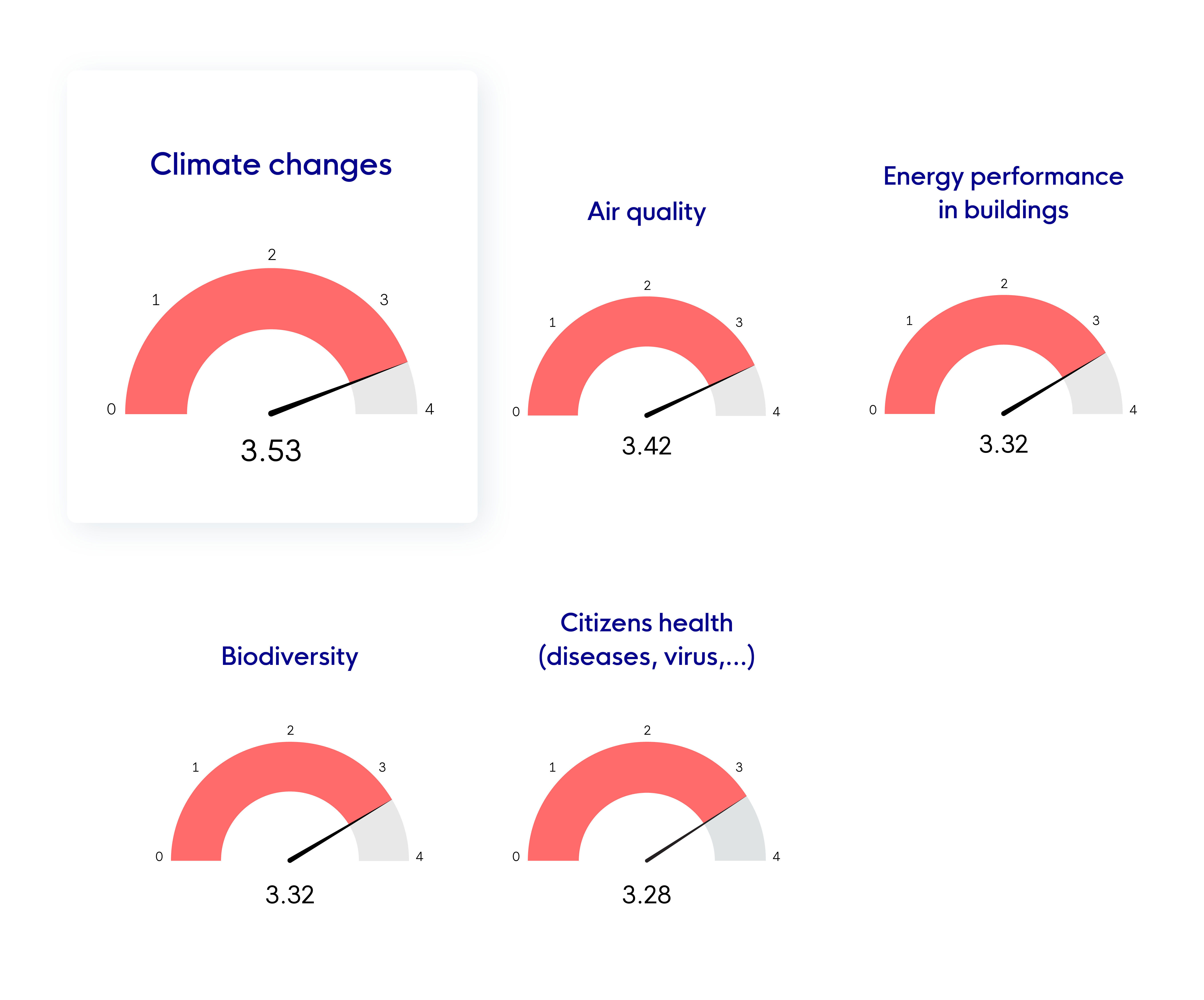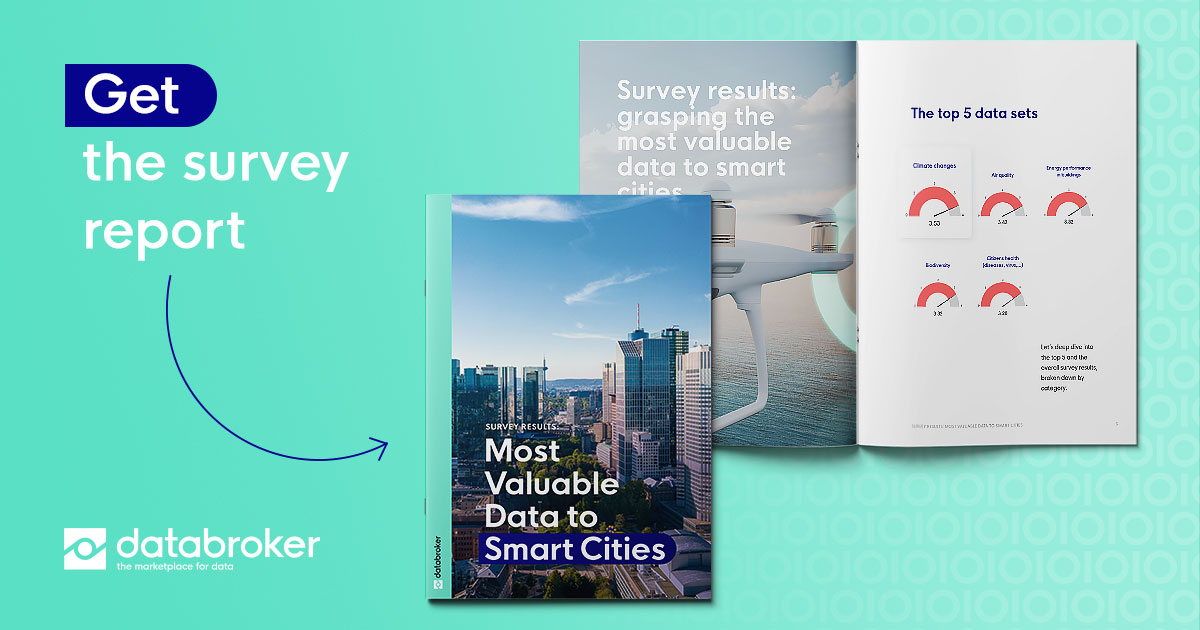Most Valuable Data to Smart Cities

Did you know that air quality, climate change and energy efficiency in buildings top our recent survey on “The most valuable data to smart cities”?
The survey was conducted in November 2020 and gained insights from smart city stakeholders in 11 countries on four continents. To name a few: Sidney (Australia), Meishan (China), Selangor (Malaysia), Columbia (US), Madrid (Spain), Copenhagen (Denmark), Wellington (New Zealand), Nagpur (India), Al-Madinah (Saudi Arabia) and Istanbul (Turkey)…
The respondents - who included smart city stakeholders such as business development managers, sustainable development experts, and city council innovation leads – were asked which data sets they are currently most interested in for driving smart city initiatives. The data sets were categorized into data communities and themes. These map to the data communities in the Databroker.global marketplace, namely: Geographics, Environment, Transport, People, Energy and Economics. As with practically all aspects of life in the information age, data is playing an increasingly important role in city design and function, and it’s crucial to understand its value.
Let’s deep dive into top 5 data sets

The survey showed that climate change, air quality, energy performance in buildings, biodiversity and citizens health (diseases, virus...) data are of the highest importance to respondents.
Climate change, biodiversity and air quality have long-tail impacts on the health and welfare of citizens, so it’s hardly surprising that smart city representatives place a high priority on data sets that can drive insights towards improving it. Discover how a few high-profile cities have taken the lead with ambitious initiatives to improve air quality.
Survey respondents indicated that energy performance in buildings is a highly valuable data set. With around 50% of energy consumption in cities attributed to the heating and cooling of buildings, tracking the energy performance of buildings is essential to smart city initiatives aimed at reducing cities’ carbon footprint.
Covid-19 spurred humanity to be even more cognizant of health issues. It is not surprising, then, that a high percentage of respondents indicated data on diseases and viruses to be highly valuable. Efforts to deal with Covid-19 (and future pandemics) also benefit from a data-driven approach. Examples include the use of human mobility data to gauge the effectiveness of lockdowns. When correlated with the number of infections, we stand to gain a clearer picture of the effectiveness of lockdowns, important knowledge for dealing with the next pandemic.
Interested in knowing more? Get the full results of our “Most valuable data to smart cities” survey here.

Do you have data assets valuable in the smart city sector? Or are you in need of hard-to-find data assets?
Vincent Bultot, the Databroker DataMatch Advisor, will help you find the data you need! No upfront costs, no risks!
Leave him a message at vincent@databroker.global or schedule a 15-minute meeting here.













